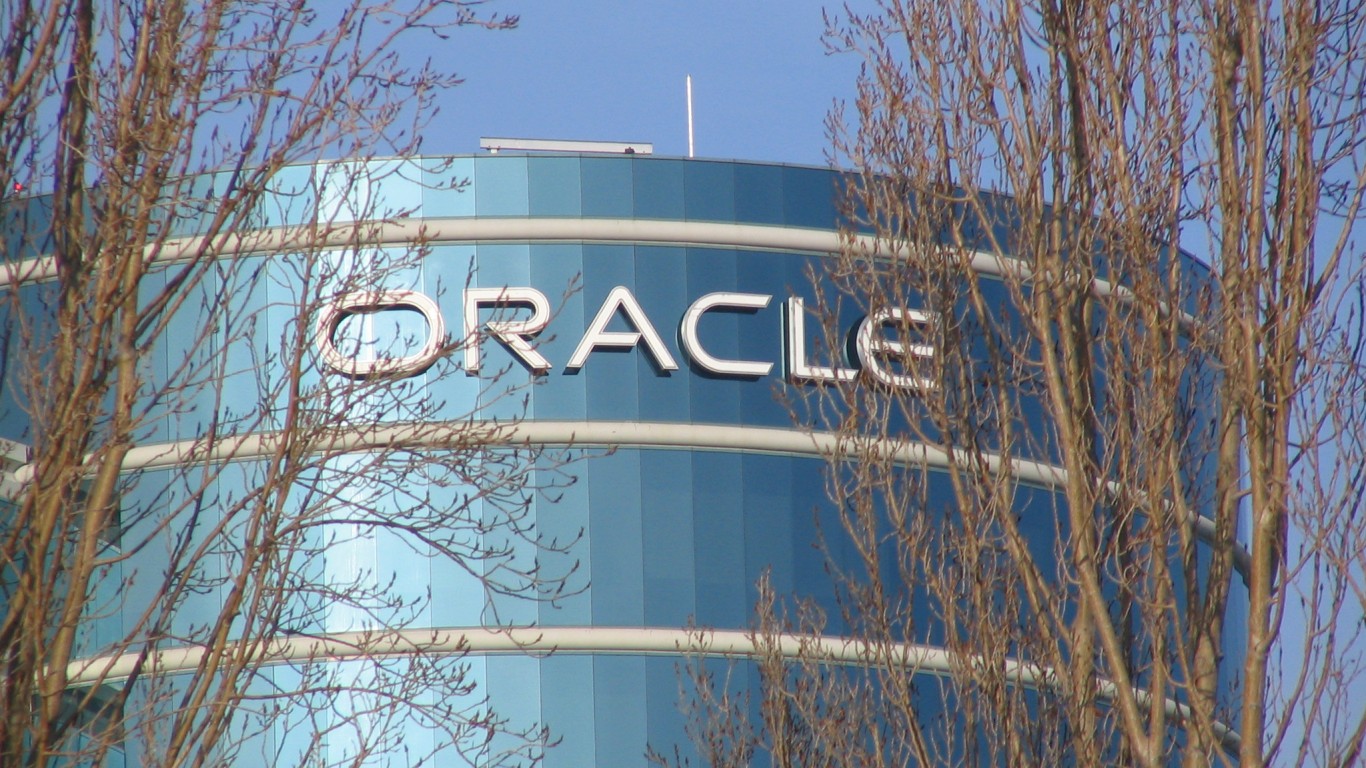

The bull market is now well over 10 years old, and the major equity indexes recently hit all-time highs. This is a time when investors should be considering how they want their assets and investments to be positioned heading into a potentially economic changing election in 2020. One thematic investment strategy that has continued to grow in assets and in reputation is the so-called ESG investing theme.
ESG includes companies that have high ranks in aspects such as environmental, social and corporate governance. The term has expanded over time for investors and now includes sustainable investing, socially responsible investing and mission-oriented or impact investing strategies all at once. The goal with these funds is to invest in companies that seem to be doing good for society and that have models that can be sustained for decades without doing harm to society or the planet as a whole.
While the ESG investing theme is far from new, it has taken quite some time for it to move outside of certain obvious segments (e.g., solar, genomics, clean tech, environmental) that are far too volatile for many investors to consider. The key exchange-traded funds (ETFs) finally have reached a mass in assets under management that the ESG theme cannot be ignored. There is just one problem though. Many of the top ESG-themed funds range from being very similar to nearly identical in structure.
The MSCI USA ESG Select Index seems to be a key reason for such a strong overlap among top funds. That said, some funds keep ESG in mind with their vision for the future in alternative energy, health care innovation and innovation around manufacturing, financial services and so on. This makes for a rather broad definition and range for what “ESG” really means heading into 2020 and looking beyond. Some of the newest ETFs are the ones that are already among the largest in the field.
24/7 Wall St. has screened the top ESG ETFs to see how each of these differ or are similar. We have referenced the ETFdb.com site and viewed each ETF family’s individual websites in compiling the data. There are some differences in some of the funds, but none of the differences was great enough that it interfered with evaluating the basic criteria.
It turns out that ESG-themed funds have severe overlaps, with Microsoft, Apple, Johnson & Johnson, Alphabet, Visa, Procter & Gamble, Disney and others in their top holdings. These companies are not small enough that the daily inflows or outflows of ESG investing would move their shares, but true ESG investors might have conflicting opinions about the core values of some of the top companies in this strategy.
We have looked at the size of the ETF by assets under management, expense ratios, the number of holdings within each ETF, and we have included the top 15 individual holdings that make up each ETF. Performance metrics as of July 8, 2019, are also shown for a reference against the broader S&P 500 Index gain of 19.4% in 2019 and 10.2% over the trailing 12 months.
BlackRock’s iShares ESG MSCI USA Leaders
> Year-to-date gain: 6.0% (but it’s new)
> Year-over-year gain: N/A
BlackRock’s iShares ESG MSCI USA Leaders ETF (SUSL) is brand new with a May 2019 launch. It already had $1.432 billion in assets under management, and the fund tracks the MSCI USA Extended ESG Leaders Index. It comes with only a 0.10% expense ratio. This ETF holds some 322 stocks, and its top 15 holdings by weighting are:
- Microsoft (MSFT), 7.55%
- Johnson & Johnson (JNJ), 2.83%
- Alphabet (GOOG), 2.69%
- Alphabet (GOOGL), 2.56%
- Visa (V), 2.34%
- Procter & Gamble (PG), 2.14%
- Walt Disney (DIS), 1.94%
- Mastercard (MA). 1.88%
- Verizon Communications (VZ), 1.82%
- Home Depot (HD), 1.80%
- Merck (MRK), 1.67%
- Intel (INTC), 1.63%
- Coca-Cola (KO), 1.60%
- PepsiCo (PEP), 1.41%
- Netflix (NFLX), 1.26%
Xtrackers MSCI USA ESG Leaders Equity
> Year-to-date gain: 8.0% (also new)
> Year-over-year gain: N/A
The Xtrackers MSCI USA ESG Leaders Equity ETF (USSG) launched only in March of 2019, and it already has $1.209 billion in assets under management and tracks the MSCI USA ESG Leaders Index. It has only a 0.10% expense ratio, and its top 15 holdings of 321 total holdings are:
- Microsoft (MSFT), 7.58%
- Johnson & Johnson (JNJ), 2.84%
- Alphabet (GOOG), 2.69%
- Alphabet (GOOGL), 2.61%
- Visa (V), 2.35%
- Procter & Gamble (PG), 2.15%
- Disney (DIS), 1.95%
- Mastercard (MA), 1.90%
- Verizon (VZ), 1.83%
- Home Depot (HD), 1.81%
- Merck (MRK), 1.68%
- Intel (INTC), 1.64%
- Coca-Cola (KO), 1.61%
- PepsiCo (PEP), 1.42%
- Netflix (NFLX), 1.27%
iShares MSCI USA ESG Select
> Year-to-date gain: 20.0%
> Year-over-year gain: 10.3%
iShares MSCI USA ESG Select ETF (SUSA) has a 0.25% expense ratio and was last shown to have $1.108 billion in assets under management. It tracks the MSCI USA ESG Select Index.
Of the fund’s 127 holdings, here are its top 15 by weighting:
- Microsoft (MSFT), 5.11%
- Ecolab (ECL), 4.43%
- Apple (AAPL), 3.83%
- Accenture (ACN), 2.91%
- Alphabet (GOOGL), 2.41%
- 3M (MMM), 2.39%
- BlackRock (BLK), 2.19%
- Salesforce.com (CRM), 1.92%
- Marsh & McLennan (MMC), 1.77%
- Northern Trust (NTRS), 1.75%
- PepsiCo (PEP), 1.71%
- Agilent Technologies (A), 1.58%
- Procter & Gamble (PG), 1.53%
- American Express (AXP), 1.51%
- Merck (MRK), 1.39%
Vanguard ESG U.S. Stock
> Year-to-date gain: 21.2%
> Year-over-year gain: N/A
The Vanguard ESG U.S. Stock ETF (ESGV) launched in September of 2018 and has only a 0.12% expense ratio. ETFdb.com showed it to have $535 million in assets under management. It tracks the FTSE (Russell) US All Cap Choice Index and has 989 holdings, on last look. The top 15 by weighting were as follows:
- Microsoft (MSFT), 4.22%
- Apple (AAPL), 3.84%
- Amazon.com (AMZN), 3.28%
- Facebook (FB), 1.92%
- Alphabet (GOOG), 1.65%
- JPMorgan (JPM), 1.47%
- Visa (V), 1.22%
- Procter & Gamble (PG), 1.14%
- Alphabet (GOOGL), 1.13%
- Bank of America (BAC), 1.02%
- Walt Disney (DIS), 1.02%
- Cisco Systems (CSCO), 1.02%
- AT&T (T), 1.02%
- Pfizer (PFE), 1.00%
- Verizon (VZ), 0.98%
iShares MSCI KLD 400 Social
> Year-to-date gain: 19.8%
> Year-over-year gain: 10.6%
The iShares MSCI KLD 400 Social ETF (DSI) offers exposure to an index made up of companies with positive environmental, social and governance characteristics. It also aims to maintain a risk/return profile that is generally similar to a more general benchmark of U.S. equities. ETFdb.com shows it to have $1.487 billion in assets under management and a 0.25% expense ratio. The ETF tracks the MSCI KLD 400 Social Index and has 405 holdings. Its top 15 positions by weighting:
- Microsoft (MSFT), 7.47%
- Facebook (FB), 3.50%
- Alphabet (GOOG), 2.66%
- Alphabet (GOOGL), 2.54%
- Visa (V), 2.31%
- Procter & Gamble (PG), 2.11%
- Disney (DIS), 1.92%
- Cisco Systems (CSCO), 1.86%
- Mastercard (MA), 1.86%
- Verizon (VZ), 1.80%
- Home Depot (HD), 1.78%
- Merck (MRK), 1.65%
- Intel (INTC), 1.62%
- Coca-Cola (KO), 1.58%
- Netflix (NFLX), 1.24%
FlexShares STOXX US ESG Impact Index Fund
> Year-to-date gain: 19.9%
> Year-over-year gain: 12.4%
The FlexShares STOXX US ESG Impact Index Fund (ESG) is a passively managed ETF managed by Northern Trust. It has a 0.32% expense ratio and only $48.1 million in assets under management. This ETF tracks the STOXX U.S. ESG Impact Index and has 286 holdings. While the ETFdb.com weightings differ slightly from the FlexShares own website, both sites do show that Exxon Mobil is on the mix here, which will not stand out as a typical ESG theme at all.
The ETF’s top 15 holdings by weighting are as follows:
- Apple (AAPL), 5.08%
- Amazon.com (AMZN), 5.02%
- Microsoft (MSFT), 5.01%
- Facebook (FB), 3.73%
- Alphabet (GOOG), 2.92%
- JPMorgan (JPM), 2.91%
- Exxon Mobil (XOM), 2.57%
- Disney (DIS), 2.02%
- Bank of America (BAC), 2.00%
- AT&T (T), 1.99%
- Verizon (VZ), 1.91%
- Chevron (CVX), 1.88%
- Procter & Gamble (PG), 1.84%
- Intel (INTC), 1.69%
- Cisco (CSCO), 1.61%
iShares MSCI ACWI Low Carbon Target
> Year-to-date gain: 17.7%
> Year-over-year gain: 6.0%
The iShares MSCI ACWI Low Carbon Target ETF (CRBN) is not a carbon-cleaning index but now is it made up of companies that are only tied to cleantech or green energy. It has a 0.20% expense ratio and $460 million in assets under management. By tracking the MSCI ACWI Low Carbon Target Index, the global fund’s focus is companies focused on carbon emissions, which screens companies for greenhouse emissions. With some 1,275 equity holdings from around the globe, its top 15 by weighting were shown as follows:
- Microsoft (MSFT), 2.11%
- Apple (AAPL), 2.03%
- Amazon.com (AMZN), 1.72%
- Cash component, 1.11%
- Facebook (FB), 1.00%
- Johnson & Johnson (JNJ), 0.81%
- JPMorgan (JPM), 0.78%
- Alphabet (GOOGL), 0.78%
- Alphabet (GOOG), 0.69%
- Visa (V), 0.68%
- Nestle (VTX), 0.64%
- Procter & Gamble (PG), 0.62%
- Tencent (700:HKG), 0.60%
- Cisco (CSCO), 0.57%
- Alibaba (BABA), 0.56%
Some investors may choose to look for other funds that are outside of traditional ESG index-tracking models that seek to accomplish some of the same goals.
ARK Innovation
> Year-to-date gain: 28.5%
> Year-over-year gain: 9.3%
The ARK Innovation ETF (ARKK) tracks disruptive innovation and includes companies with technologically enabled new products or services that potentially change the way the world works. They rely on or benefit from the development of new products or services and technological improvements coming from scientific research, DNA/genomics, industrial innovation in energy, automation and manufacturing, as well as from the increased use of shared technology, infrastructure and services. It also includes technologies making financial services more efficient via fintech.
The ARK Innovation ETF was shown to have $1.62 billion in assets under management, per its own website, and to have a 0.75% expense ratio as it is an actively managed fund. ETFdb.com shows that it has 37 current holdings, and these are its top 15 holdings by weighting:
- Tesla (TSLA), 10.79%
- Stratasys (SSYS), 7.75%
- Invitae (NVTA), 7.62%
- Illumina (ILMN), 6.07%
- Square (SQ), 5.64%
- NanoString Technologies (NSTG), 4.57%
- Intellia Therapeutics (NTLA), 4.47%
- Nvidia (NVDA), 4.28%
- CRISPR Therapeutics (CRSP), 3.98%
- Editas Medicine (EDIT), 3.69%
- Twitter (TWTR), 3.41%
- Veracyte (VCYT), 2.71%
- Spotify Technology (SPOT), 2.39%
- Zillow (Z), 2.17%
- Baidu (BIDU), 2.11%
SPDR SSGA Gender Diversity Index
> Year-to-date gain: 17.4%
> Year-over-year gain: 8.4%
Another ETF that is not solely ESG-focused that fits within the social aspect of the goals would be the SPDR SSGA Gender Diversity Index ETF (SHE). This company tracks the SSGA Gender Diversity Index and has $288 million in assets under management with a 0.20% expense ratio. With a total of 166 holdings in all, ETFdb.com shows its top 15 holdings by weighting as follows:
- Johnson & Johnson (JNJ), 8.92%
- Mastercard (MA), 6.00%
- Home Depot (HD), 5.85%
- Coca-Cola (KO), 5.28%
- Wells Fargo (WFC), 4.77%
- PepsiCo (PEP), 4.51%
- Amgen (AMGN), 2.82%
- Texas Instruments (TXN), 2.45%
- Starbucks (SBUX), 2.42%
- U.S. Bancorp (USB), 2.12%
- Caterpillar (CAT), 1.86%
- TJX Companies (TJX), 1.64%
- ConocoPhillips (COP), 1.61%
- S&P Global (SPGI), 1.43%
- Ecolab (ECL), 1.30%
SPDR S&P 500 Fossil Fuel Reserves Free
> Year-to-date gain: 19.3%
> Year-over-year gain: 11.0%
There is also the SPDR S&P 500 Fossil Fuel Reserves Free ETF (SPYX), which tracks the S&P 500 Fossil Fuel Free Index. The fund has $372 million in assets under management and a 0.20% expense ratio. It is focused on S&P 500 companies that are not involved in operations that generate, drill for or service fossil fuels nor which require storage of fossil fuel reserves. Its holdings are deemed to be more climate cautious.
The ETFdb.com site shows it to have 485 holdings, and the top 15 by weighting were listed as follows:
- Microsoft (MSFT), 4.41%
- Apple (AAPL), 3.73%
- Amazon.com (AMZN), 3.47%
- Facebook (FB), 1.97%
- Berkshire Hathaway (BRK.B), 1.75%
- Johnson & Johnson (JNJ), 1.56%
- JPMorgan (JPM), 1.54%
- Alphabet (GOOGL), 1.40%
- Alphabet (GOOG), 1.40%
- Visa (V), 1.29%
- Procter & Gamble (PG), 1.18%
- Bank of America (BAC), 1.09%
- AT&T (T), 1.05%
- Disney (DIS), 1.04%
- Pfizer (PFE), 1.02%
While the more recent ESG funds seem by and large to be getting the assets at the current time, the reality is that there is a huge overlap among most ESG funds. Many of these companies are large-cap stocks, and some investors will wonder if they should truly be included in an ESG theme due to who they do business with and what sort of businesses they may own.
Sponsored: Attention Savvy Investors: Speak to 3 Financial Experts – FREE
Ever wanted an extra set of eyes on an investment you’re considering? Now you can speak with up to 3 financial experts in your area for FREE. By simply
clicking here you can begin to match with financial professionals who can help guide you through the financial decisions you’re making. And the best part? The first conversation with them is free.
Click here to match with up to 3 financial pros who would be excited to help you make financial decisions.
Thank you for reading! Have some feedback for us?
Contact the 24/7 Wall St. editorial team.
 24/7 Wall St.
24/7 Wall St. 24/7 Wall St.
24/7 Wall St.


